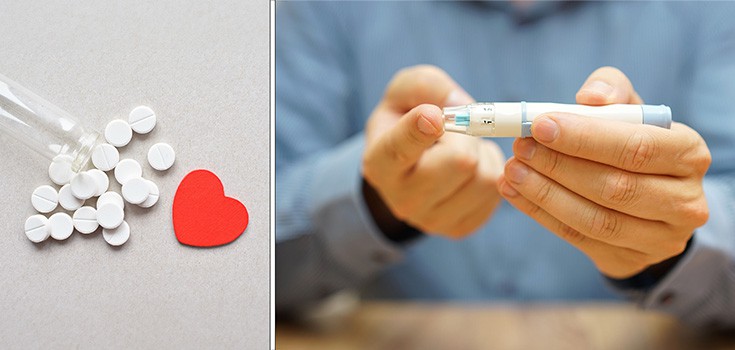Cholesterol Alert: Statins Tied to Increased Diabetes Risk

A study from Finland suggests that cholesterol-lowering drugs known as Statins may increase one’s risk of developing the highly-preventable Type 2 diabetes by nearly 50% – even after adjusting for other factors. With the widespread use of cholesterol-lowering statin drugs, this news is not what many folks will want to hear.
Statins Linked to 46% Increased Risk of Type 2 Diabetes
A 46% higher risk for Type 2 diabetes (nearly 50%) is a quite unfavorable consequence for those who are ‘reliant’ on statins for blood pressure or plaque buildup throughout the circulatory system.
However, due to the many other conditions that can occur with diabetes, this correlation must be taken seriously, particularly for the elderly or those who have weak dietary discipline.
It should be noted that some of the conclusions of this study read like the worst-case scenario specifically for white men since the control group was made up of exclusively Caucasian males.
“Statins appear to increase the risk of type 2 diabetes in several ways, the researchers said. One is that the drugs can increase a person’s insulin resistance, and the other is that the cholesterol-lowering drugs seem to impair the ability of the pancreas to secrete insulin, according to the report.” [1]
Type 2 diabetes is already a major medical condition affecting well over 29 million people in the United States. With the advancement of age, the incidence rises very quickly. Significantly, there are many folks who are actually pre-diabetic or undiagnosed diabetics and who are also on statins. They especially need to be aware that the longer the period of statin use, the greater the potential likelihood that Type 2 diabetes will develop.
Read: Don’t Fall for the Cholesterol Myth
It’s even more concerning when considering that statin use increased by a whopping 197% between 2018-2019 when compared to the number of people taking statins between 2008-2009. Statin use climbed from 31 million (12%) in 2008–2009 to 92 million (35%) in 2018–2019.
The data of the aforementioned study seems to suggest that any individual who has a personal or family history of “impaired glucose tolerance” (also known as pre-diabetes) ought to be wary of using statins to control BP or lower cholesterol.
Obviously, it’s always a good idea for the prescribing physician to be properly informed if there is a family history of blood sugar problems or any other familial history.
Other 2023 research also confirms the statin-diabetes link, but says it’s not worrisome enough to halt statin use.
Meta-Analysis Draw Link Between Statins and Diabetes Risk
According to a 2011 meta-analysis of 5 different trials involving 32,000 people: the higher the dosage of statin drugs being taken, the greater the diabetes risk.
Number Needed to Harm and Number Needed to Treat
The “number needed to harm” for intensive-dose statin therapy was 498 for new-onset diabetes—that’s the number of people who need to take the drug in order for one person to develop diabetes. In even simpler terms, one out of every 498 people who are on a high-dose statin regimen will develop diabetes. (The lower the “number needed to harm,” the greater the risk factor is.)
Conversely, the “number needed to treat” per year for intensive-dose statins was 155 for cardiovascular events. This means that 155 people have to take the drug in order to prevent one person from having a cardiovascular event.)
Delicate Balancing Act Between Heart Health and Sugar Balance
There is no question that both doctor and patient can be put into a demanding predicament the more diabetes becomes a reality for a heart attack or stroke patient. The tradeoff between the two treatment regimes will undoubtedly present choices that will be as conflicting as it is challenging.
However, there is a way out for those who are confronted by this as well as by similar competing health challenges. That way out concerns the serious consideration of positive changes in lifestyle, as well as of natural treatments. Toward that end, diet and exercise are the best places to start since each can contribute to the mitigation of both conditions.
Read: 7 Super Simple Ways to Boost Heart Health
The only realistic way to deal with this medical conundrum is to adopt some fundamental dietary changes. Reducing red meat intake and embracing a plant-based diet would be especially helpful. Engaging in an exercise regimen that will systematically encourage weight loss, heart rate reduction, and blood pressure moderation would also assist in a durable resolution.
